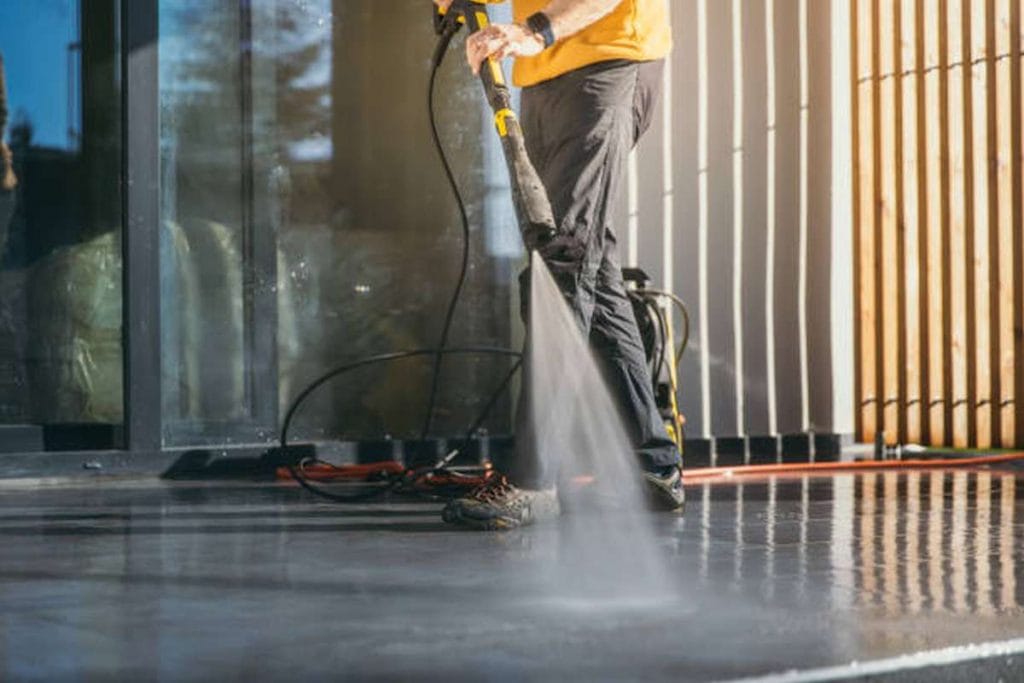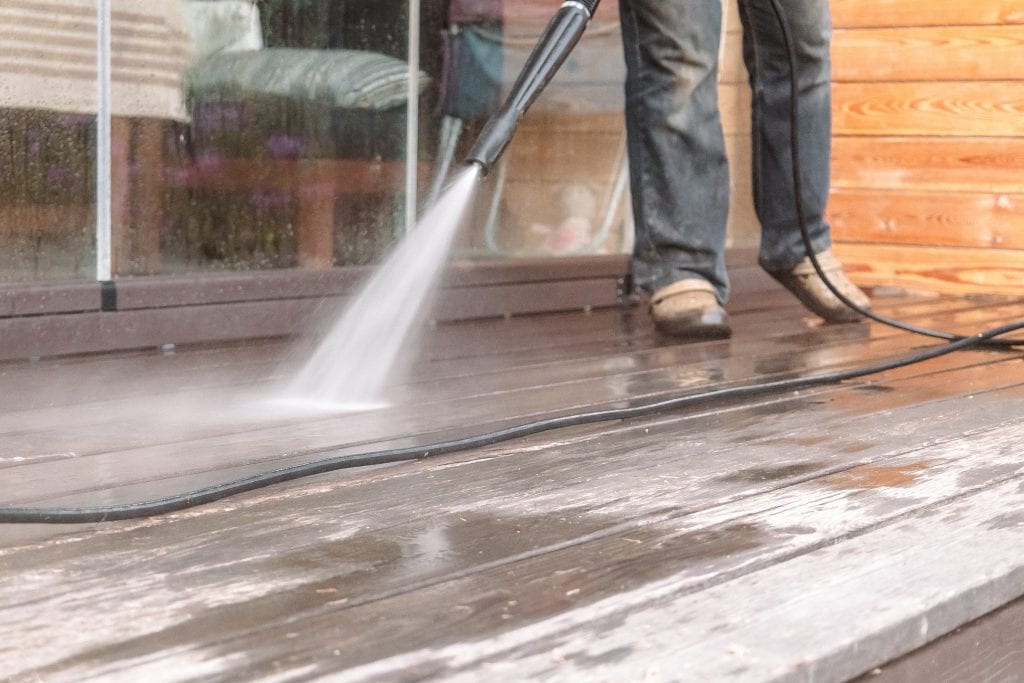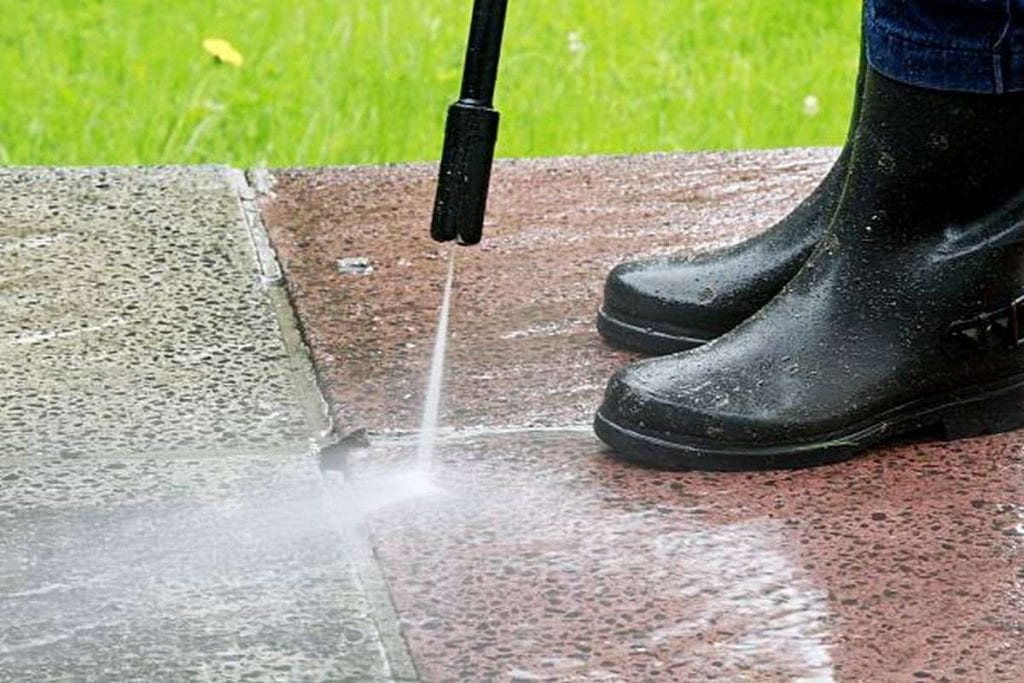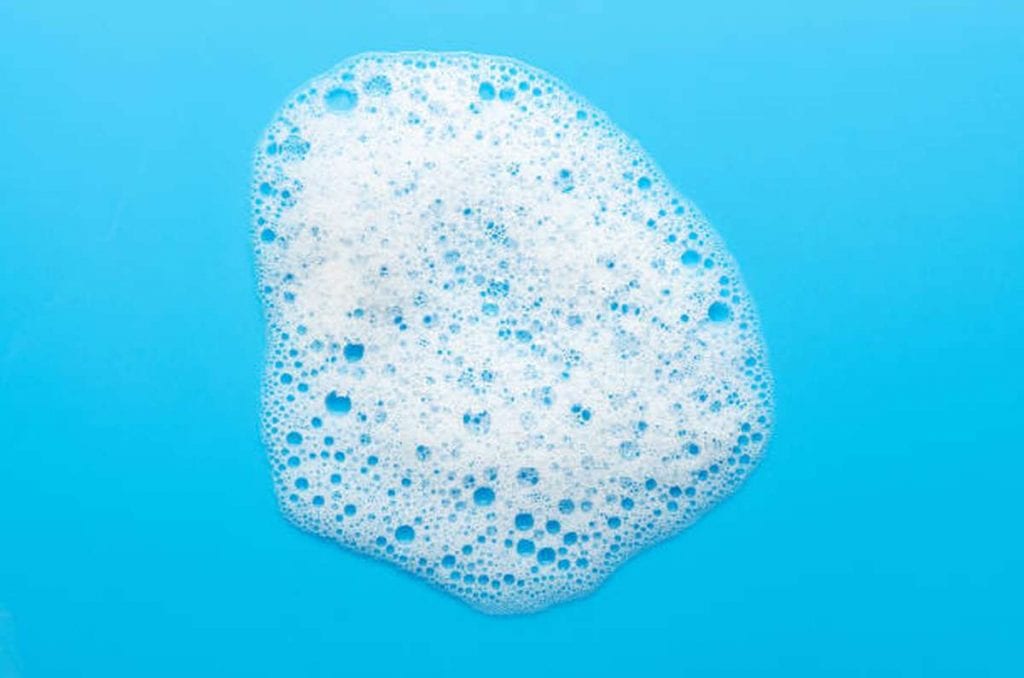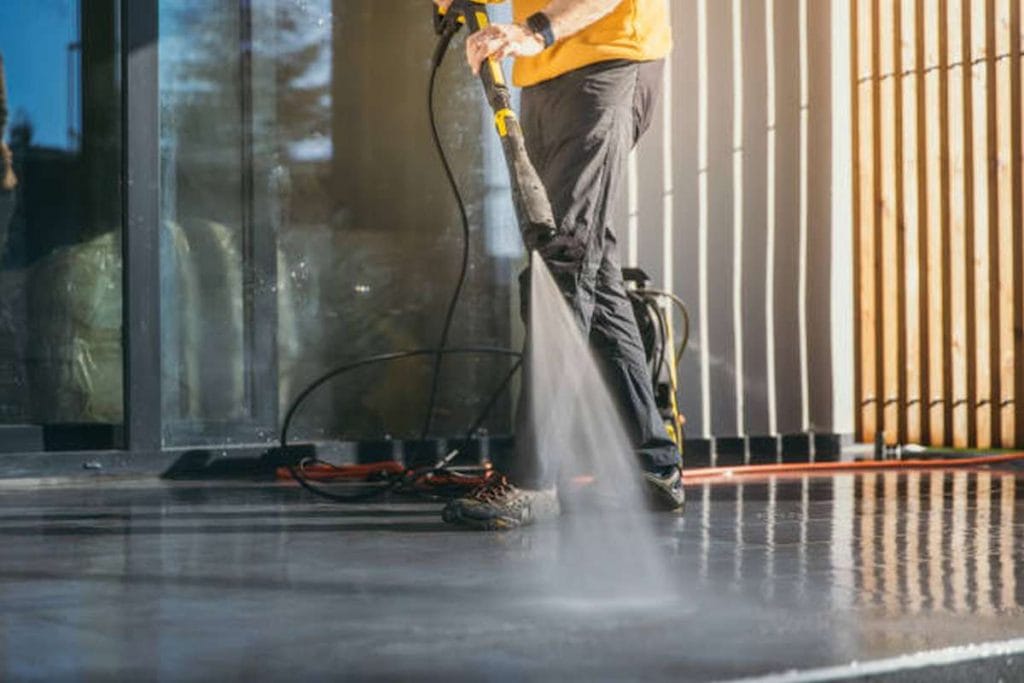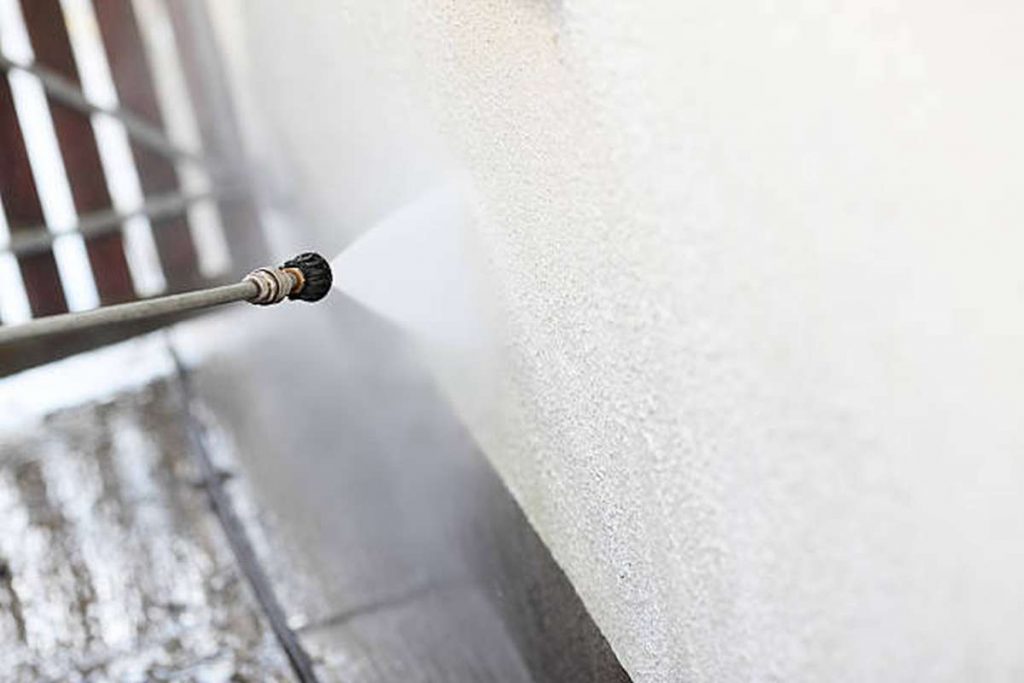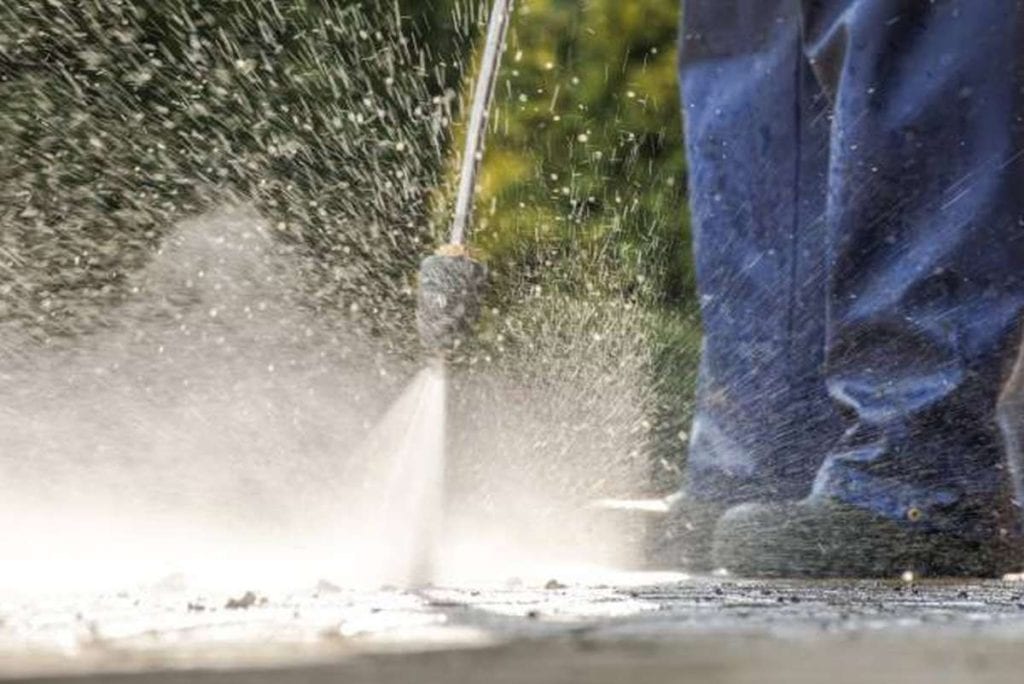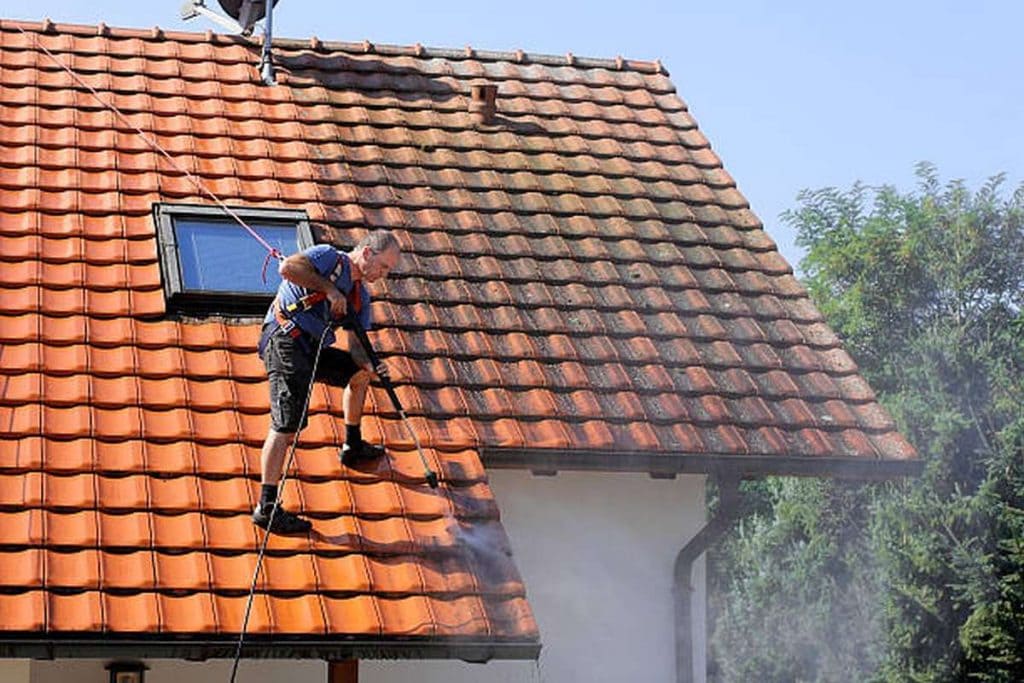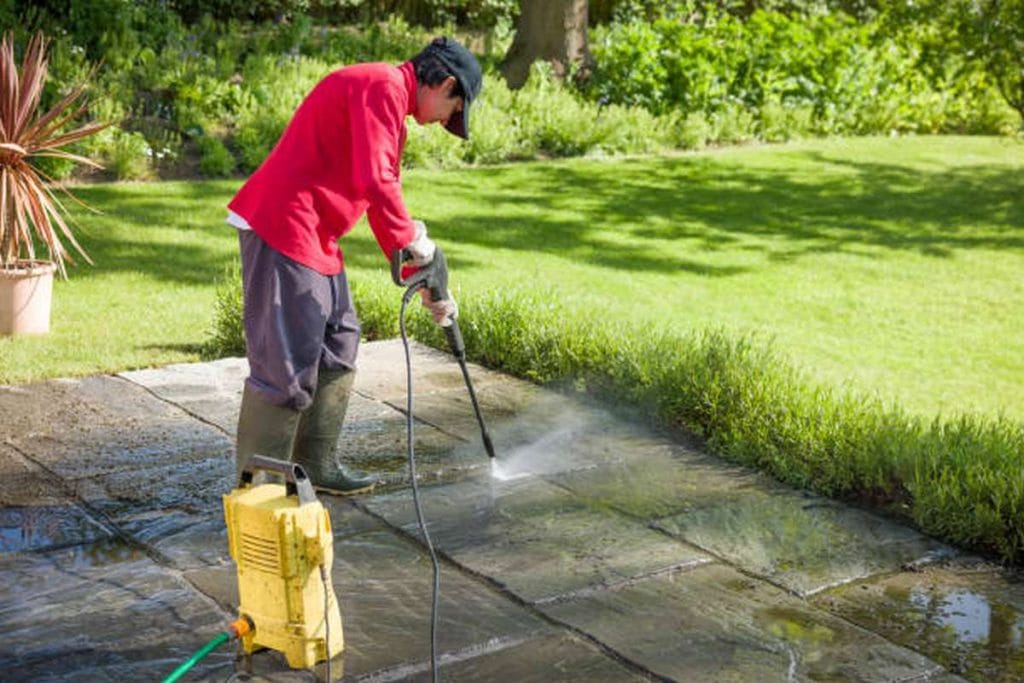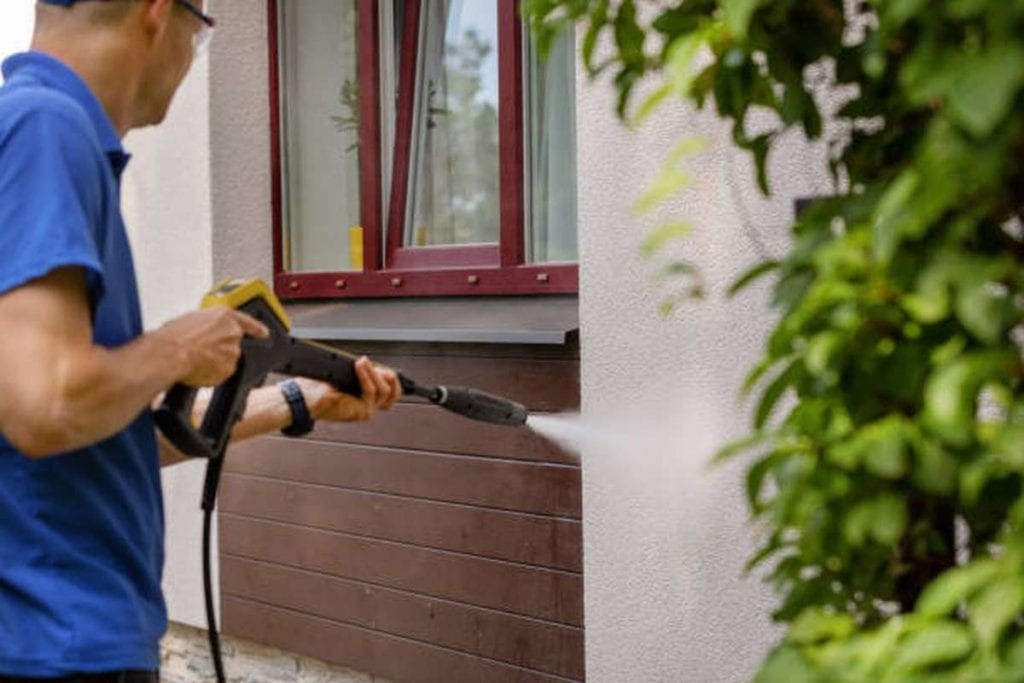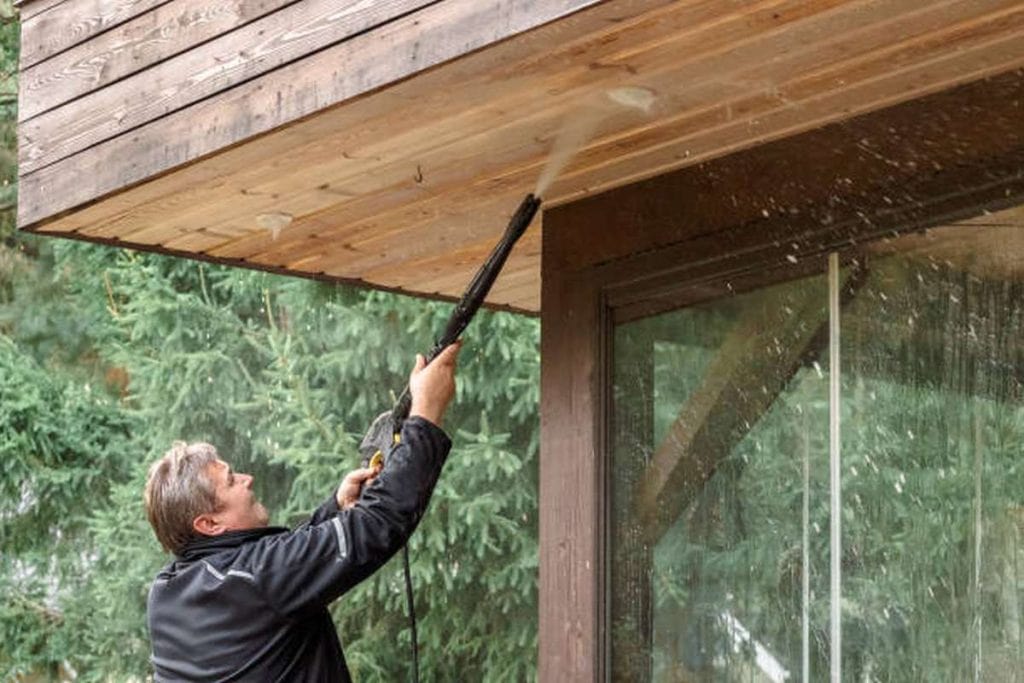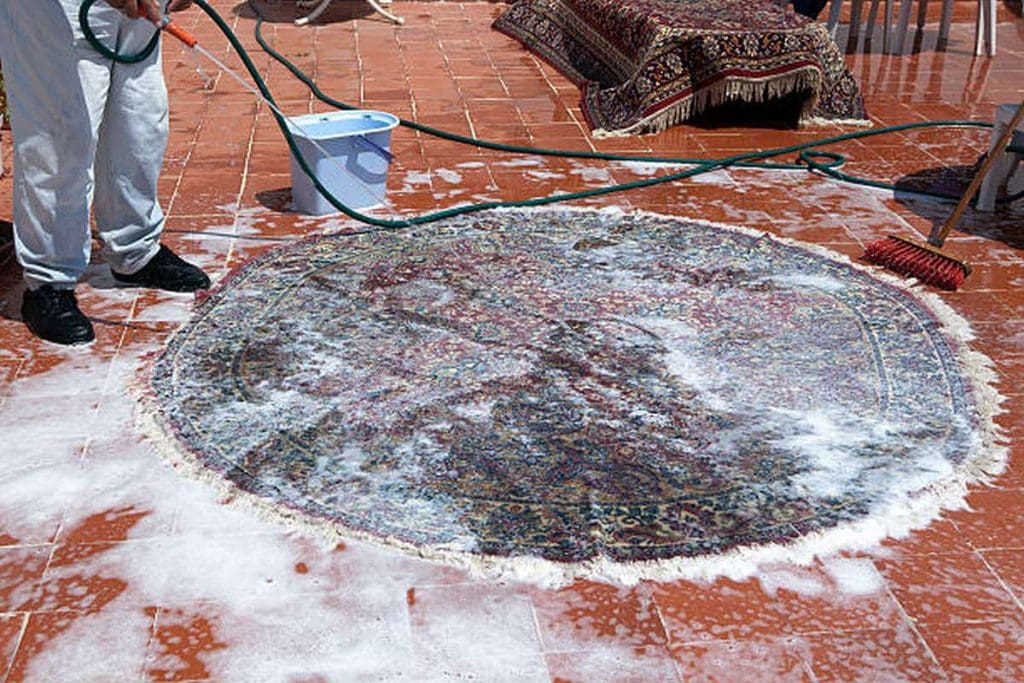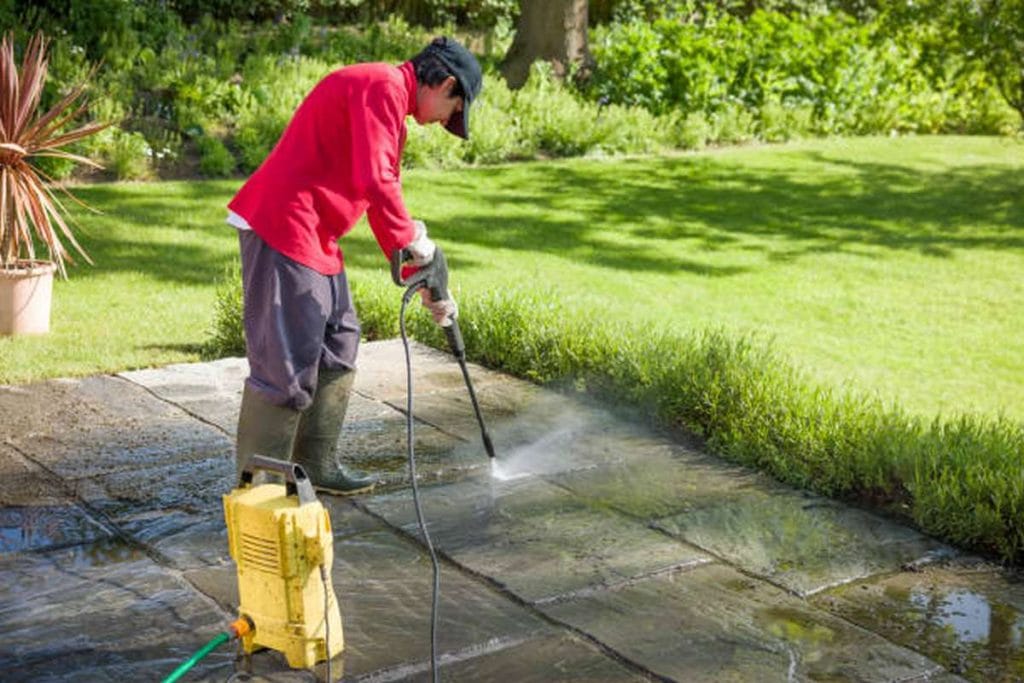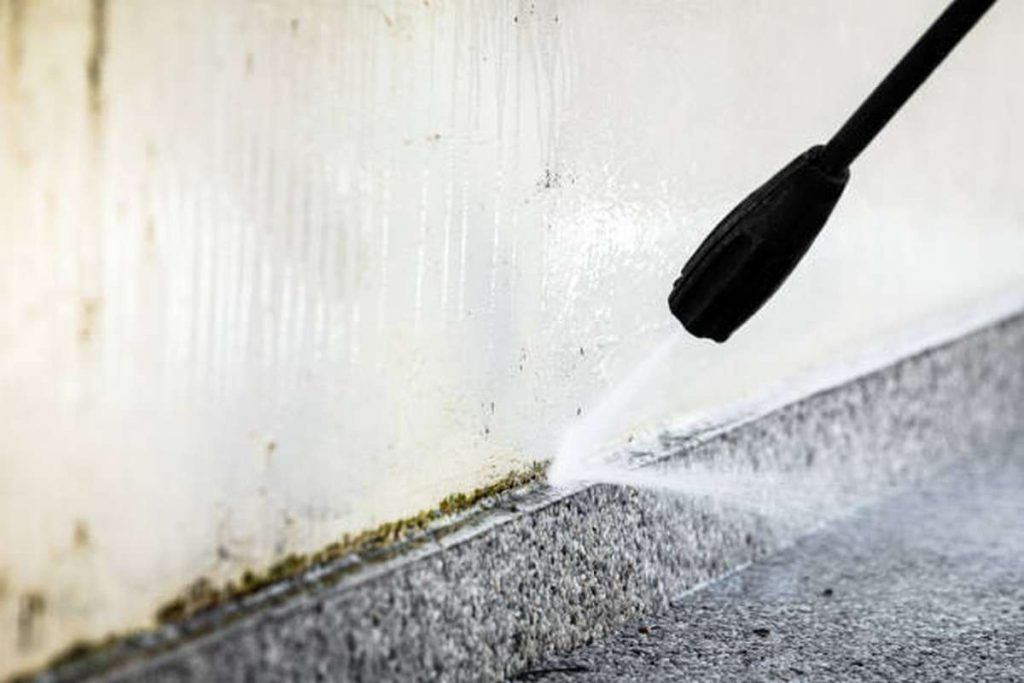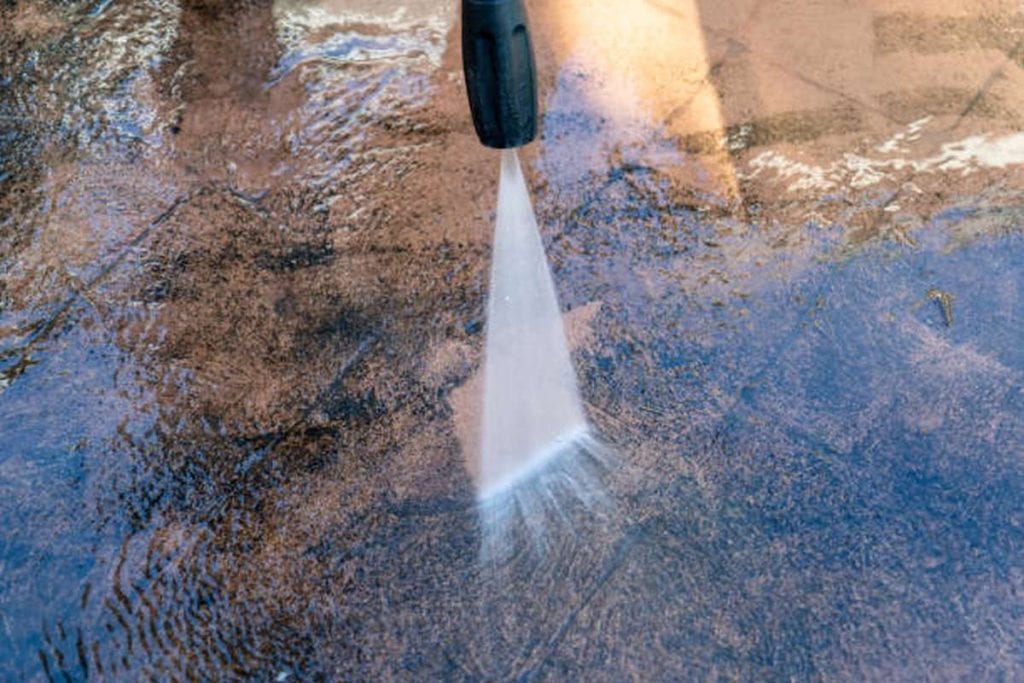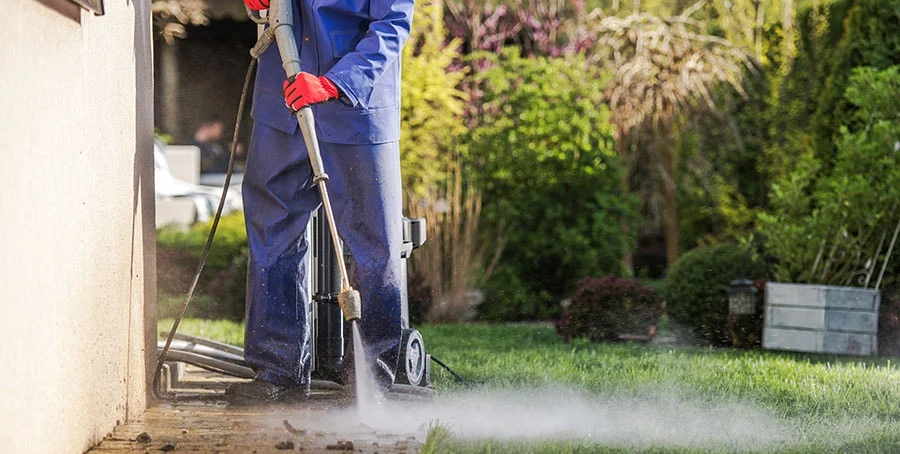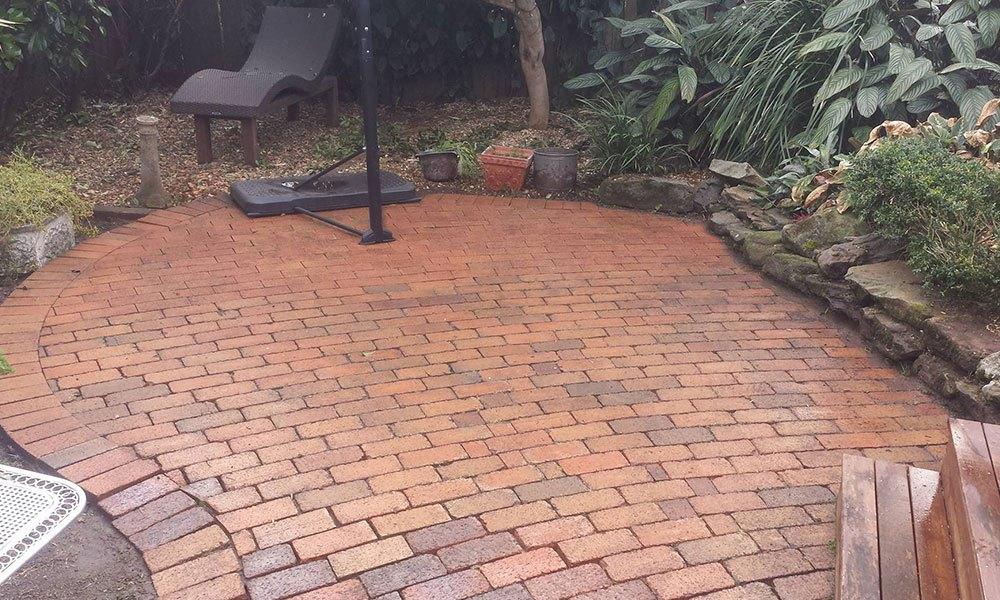If your home's exterior looks a little drab and you're thinking of pressure washing it, you've come to the right place! If you’re looking for a high-quality, affordable pressure-washing service, Melbourne's Pressure Washing is the company for you.
Pressure washing can make old surfaces look new and help protect your home from potential damage. However, before you break out the pressure washer, a few steps must be taken to ensure that everything goes smoothly.
This blog post will discuss everything you need to do to prepare for a successful pressure-washing session. So read on if you want your home to shine brighter than ever!
What You Need to Know Before Using a Power Washer
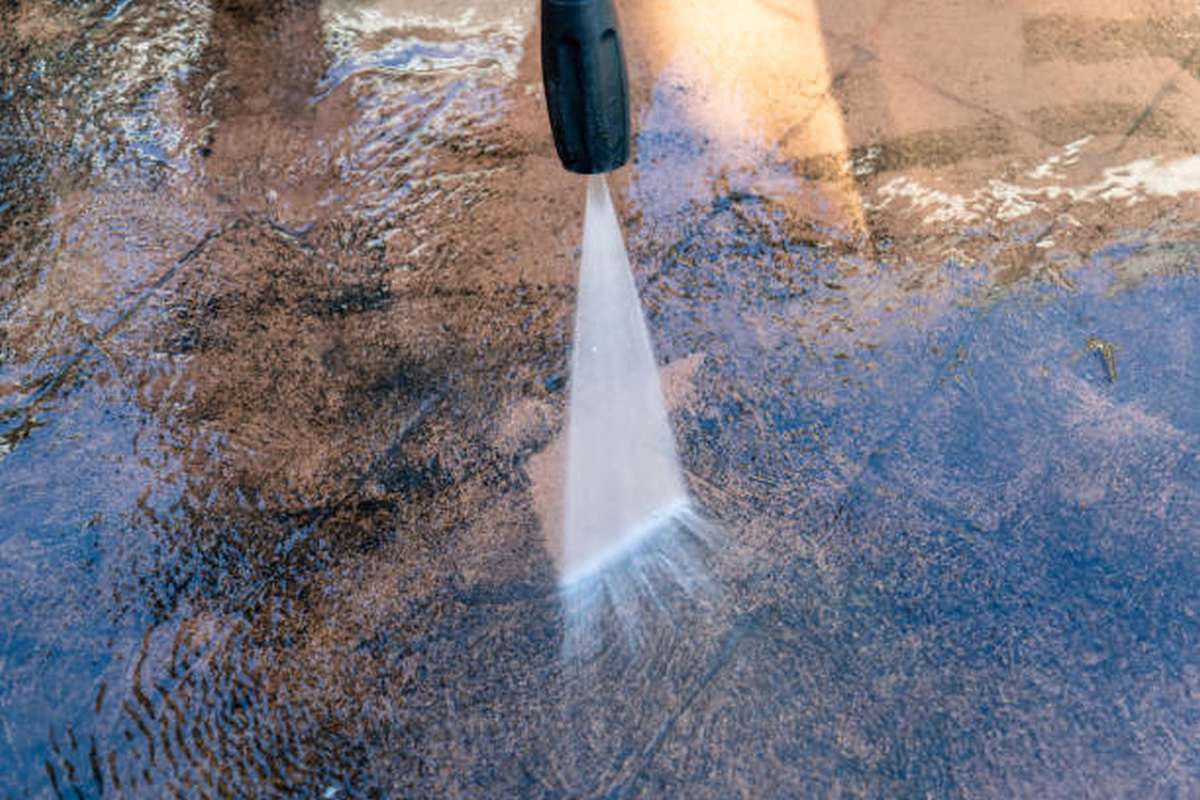
Structures, fences, masonry, some automobiles, and asphalt or concrete surfaces like driveways or patios can benefit from a good power washing or pressure washing to eliminate loose paint, mould, dust, algae,muck, chewing gum, , filth and grime. Power and pressure washing are commonly used interchangeably, although they are two varied methods with distinct purposes. Power washing and pressure washing utilise pressurised water to sanitise floors, but power washing also includes a heat source to warm the water.
Hot water is more effective for cleaning than cold water. Additives such as vinegar, baking soda, citric acid, power generation washing cleansers, detergents, sanitisers, and disinfectants are necessary for power washing some items. Here are seven more things to consider before giving your home's exterior a pressure or power wash:
Know When To Use Power Washing And Pressure Washing
Giving your home, driveway, deck, or some other surfaces a thorough steam cleaning is enticing. Most stains and grime can be removed with hot water from a high-pressure hose. However, it is not a good option for masonry materials like brick or concrete. This level of efficacy in cleaning is not without cost. Cleaning them with a pressure washer may be too damaging. Instead, you should clean it with a pressure washer and the right cleaner.
Know the Distinction Between Consumer- And Industrial-Grade Cleaners
It'sFamiliarizing with the distinctions between consumer-grade and industrial-grade cleaning supplies is important.
There are differences between several types of cleaning products. When using a power or pressure washer, it's important to know the distinction between the many cleaners available. Power and pressure washers require four different chemical solutions. These substances have specific labels denoting their function and the material they should be applied on. Cleaners remove sanitisers and kill the dirt and 99.999% of microorganisms can be killed by disinfectants in 30 minutes, and germs can be killed in 30 seconds.
When cleaning something, keep in mind that each surface is unique. Different surfaces call for various approaches, nozzle diameters, pressures, and in certain cases, chemicals. Pre-mixed cleaners for house and exterior, and fences and decks, are available for purchase and are a good option if you aren't a professional. Different soaps are designed for surfaces, including asphalt, concrete, and wood. Select the proper cleaning solution for your intended surface. You can clean items with pressure washing and water, but consider how much better they would be cleaned with soap, pressure and hot water.
Residential Pressure Washing is safe for all types of siding and will not damage your home or landscaping.
Recognise the Items That Need Washing and Those That Don't
Using a pressure or power washer is not a safe option for cleaning all surfaces around your house. The following should not be washed with a power washer or under high pressure:
- Fine sandstone - Getting rid of it is as simple as washing it or creating grooves. It can't be washed with a power washer or pressure washer since the component is too delicate.
- Finished artwork - It is possible to wash painted objects, but only a professional should attempt to do so.
- Roofs made of asphalt - If you power wash or use high pressure at the top of an asphalt roof , the granules will come out, and the roof will be destroyed.
- Old things - Dry rot can crumble under a pressure wash, so it's best to avoid using it on anything old. A pressure wash can weaken or even ruin high-quality wood.
- Walnut varnish - Wood stains may be eliminated completely by pressure or power washing. The choice is yours to make, but remember that wood needs to be re-stained after it dries if you change your mind.
Size and Surface Must Be Considered.
Considering the size of the space and the surface you'll be cleaning is vital because heat is the major or only distinction between the two (2) methods. The primary advantage of utilising steamed water is that it provides a stronger cleaning than cold water. When washing a broad area, heated water is superior. A pressure washer is preferable if the area to be cleaned has a large amount of salt, mould, weeds or moss.
Discover the Differences Between Business and Home Power.
If you're really into DIY projects, you should rent a commercial unit instead of purchasing or using a residential power washer to clean vast areas. Do yourself a favour and just get some help from an expert. Whether it's a residential or business unit, an inexperienced owner risks damaging the item or leaving visible cleaning lines that detract from its beauty. Aside from hurting yourself or others, you risk damaging the power washer.
Be Careful Around Power Tools and High-Pressure Water Sprays.
It's easy to overlook the risk of that seemingly innocuous trickle of water. With up to 2K lbs of force, it shoots out of the wand's tip. It's powerful enough to cause stone fragments and concrete to rebound with a bullet's lethality.
Thinking About the Season
The spring and fall seasons are peak times for power washing. Examine the forecast on the off chance that you get a mild winter. In hot or cold temperatures, it's fine to shoot water into crevices and cracks for cleaning, but if freezing weather is expected in a few weeks to a month following pressure/washing, the water could contract and thaw, causing damage. You shouldn't do laundry if the temperature is expected to dip below freezing.
Pressure washing is a terrific method to clean your home, vehicle, fence, or driveway, but if you've never used a spray before, proceed with caution and learn as much as possible about cleaning your home, car, fence, or road before you switch on your washer.
Power Washer: Gas or Electric?
Pressure washers use a pump to boost the water pressure in the hose to clean surfaces. You can use either gas or electricity to run the pump. Both choices have their advantages and disadvantages.
Cleaners that Use Gasoline to Create Pressure
Gas-powered pressure washers generally have greater Pounds Per Square Inch (PSI) and Gallons Per Minute (GPM) than their electric counterparts. As a result, they can clean surfaces considerably more quickly due to the increased power.
The Benefits of Using Gas-Powered Pressure Washers
- Gas-powered pressure washers offer great flexibility in terms of PSI and GPM output. They're more versatile than electric models and can clean quickly and thoroughly.
- Cordless convenience characterises gas-powered pressure washers. You can keep working even if you aren't close to an electrical socket.
Gas-Powered Pressure Washers Have Their Downsides
- Even the smallest gasoline engines need regular maintenance. If you're putting the machine away for a while, give it an oil change and supplement the gasoline as needed.
- Engines powered by gasoline produce more noise than their electric counterparts. Also, they contribute to pollution. Using a gas-powered pressure washer inside or anywhere it might be sheltered is also strongly discouraged.
Cleaners With an Electric Pressure Motor
In certain cases, electric washers are more practical than their gas-powered counterparts. Furthermore, gas emissions are not a concern.
Benefits of Using Electric Pressure Washers
- Power washers that run on electricity don't release any toxic gases. You can use one inside if you need to, but you'd need to cover your ears and find a way to drain the water quickly and efficiently.
- In contrast to gas-powered motors, electric ones never need to change their oil or perform any maintenance.
Downsides of Using an Electric Pressure Washer
- There is no way for an electric power washer to match the energy of a gas-powered one. An electric power washer will take significantly more time to accomplish the job if you need to wash a huge or extremely unclean area. And you can be disappointed by the end outcome.
- Electrical pressure washers are less mobile than their gasoline-powered counterparts since they must be plugged in at all times.
Preparing Your Home for a Pressure Washing
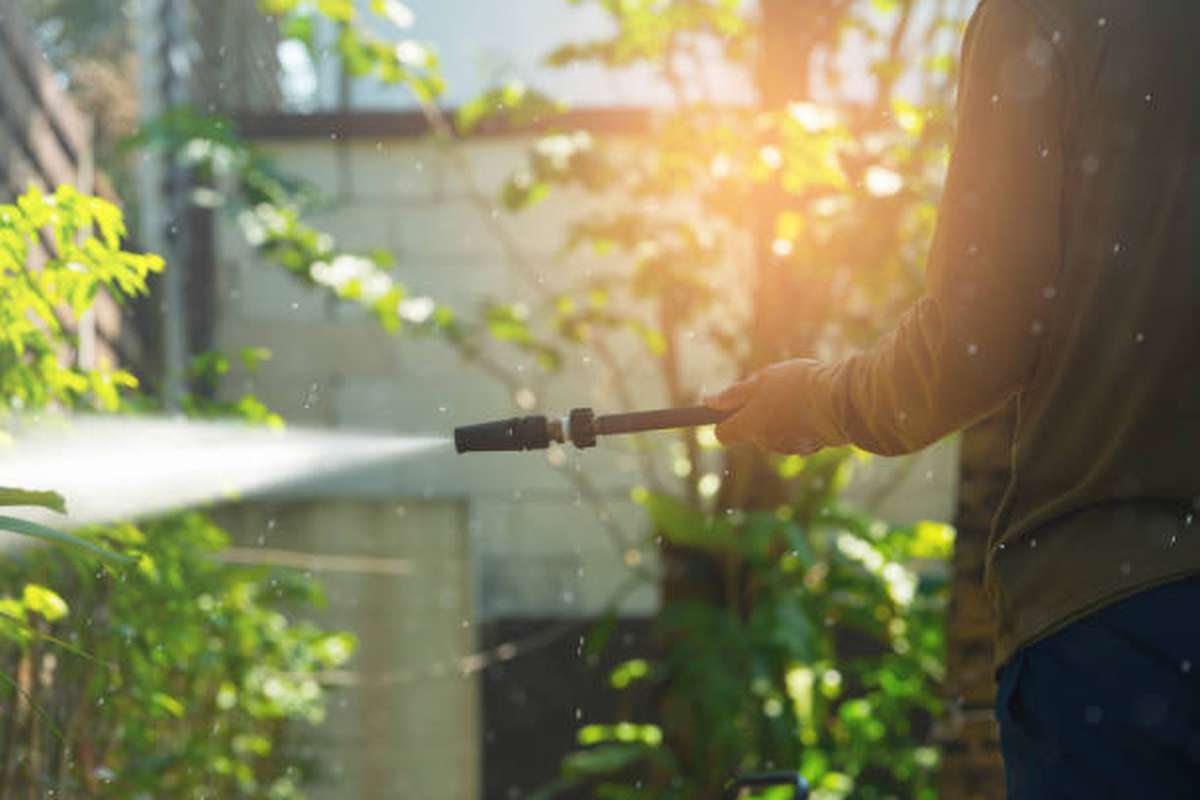
Preparing your house for pressure washing is essential whether you hire a professional or do it yourself. It's important to take the necessary precautions before pressure washing your home, both for your safety and that of your family.
Use Safety Glasses
Some may question the importance of this step but be assured it is crucial. Any flying debris or splinters will most likely land in your eyes. You could get away with just a scratch, or things could go much worse very quickly.
You should always protect your eyes since accidents happen unexpectedly. Wearing safety glasses or sunglasses designed to prevent eye damage is sufficient. If you plan on doing any pressure washing, it is important to remember to wear eye protection, a simple but sometimes overlooked precaution.
Remove All Hazards
Cleaning a dirty outdoor space with a pressure washer is like navigating a maze. As you make your way through the maze, there are numerous obstacles to sidestep.
It's important to ensure there is nothing in the way of the power washer before beginning the power washing process, such as garden furniture, toys, gear, etc. No one wants to risk injury by tripping over anything and falling.
Plants also need to be saved in a separate area. Although most pressure washing services only employ water and environmentally safe cleaning products, the kinetic force emitted can inflict severe harm. Make sure the lower portion of your home's siding is accessible by clearing the bushes away so you or a professional pressure washer may clean it.
Outdoor Power Should Be Disconnected
You'd have to be blind not to realise that electricity and water are incompatible. Compared to a standard garden hose, the amount of water used in a pressure washer is significantly less; nonetheless, this does not make it water-free. This can cause serious injury if it enters an electrical socket.
Therefore, make sure that all exterior outlets are unplugged. There could be serious consequences if you forget to turn off the electricity and a leak causes flooding within the building. Warning: if your property touches an overhead electrical line or has wires running alongside it, you should exercise caution. For instance, if you use an extension for your pressure washing wand, be sure that it doesn't touch any live electrical wiring.
Ban the Use of Stepladder
Do not use a ladder if you intend to pressure wash your home. If you're pressure washing from a ladder, watch out! The force of the water jet could knock you off balance, and the pressure washing tool could lead you to fall. It is best to avoid using a ladder because of the added danger it poses. Instead, you can extend your pressure washing wand to clean higher areas.
When cleaning your home, it's best to use a professional pressure washing service. Experts typically have the equipment and knowledge to clean inaccessible or high places. You can trust that they have what it takes to complete the task.
You Should Be Aware of the Danger Zones.
Pressure cleaning can be quite effective, but not on all surfaces. Accordingly, you should educate yourself thoroughly before attempting the job.
If you're pressure cleaning your vinyl siding, you'll want to list all the windows, ducts, holes, etc., that you shouldn't spray. Using spray in these places could cause damage. Or, water may find its way inside your house.
Hiring a pressure washing service business to conduct the work for you is a quick and simple solution. Experts will have the knowledge and equipment necessary to treat any surface.
Don't Bring the Kids or the Pets
In addition to removing any potential trip hazards, please keep your pets and children indoors. Due to the high levels of force used, pressure washing can be extremely hazardous. In addition, because of their lack of experience, children and dogs are easily lost when left alone. They also have a greater propensity for exploration and curiosity.
Close All Vents
Any holes or cracks that could let water enter should be sealed before you pressure wash your home. Unfortunately, many occurrences of water damage in homes go overlooked until it is far advanced. When getting a house ready for a pressure wash, it's important to close and lock all the windows and doors.
Fix any holes you see before your pressure washing provider arrives, or inform them of their existence. Do not forget that prevention is always preferable to treatment.
Looking for a professional exterior house cleaning service? Look no further! Pressure Washing is a professional exterior facade cleaning company that uses the latest technologies and equipment to clean your home or office quickly and efficiently.
Conclusion
Using a pressure washer to clean your home's exterior can make worn surfaces seem like new while also protecting it from harm. Before you go and give your house a good old fashioned power wash, there are a few things to think about. Hot water from a high-pressure hose can get rid of most stains and filth, but it shouldn't be used on brick or concrete because of the material's porous nature. A variety of pre-blended solutions designed for cleaning various surfaces, including homes, yards, fences, and decks, are on the market. Soaps for various surfaces, including asphalt, concrete, and wood, exist.
In order to safely clean all of your home's surfaces, you should not use a pressure or power washer. It can be fired from the wand's tip with up to 2,000 pounds of force, which is enough to cause concrete and stone to shatter and rebound with the same lethality as a bullet. Do yourself a favour and hire a pro if you're going to rent a commercial unit to clean your house instead of buying or using a domestic power washer. It is more convenient to use an electric pressure washer than a gas-powered one. If you need to clean a large or particularly grimy area, an electric power washer will take a lot longer to do the task.
For your own and your family's sake, it's vital that you observe all safety measures prior to pressure washing your property. To prevent electrocution, turn off power to any outside outlets before you pressure wash your home. Get the shrubs out of the way so you or a professional pressure washer can reach the bottom section of your house's siding. If you plan on pressure washing your home, do not do so from a ladder, since the power of the water could cause you to lose your balance and fall. The most efficient method of cleaning your home is with the help of a professional pressure washing service.
Professionals are the best bet for cleaning hard-to-reach or lofty areas because of their specialised training and equipment. Please keep your children and pets indoors. The high levels of power utilised in pressure washing make it potentially dangerous.
Content Summary
- Your home's outside may look dreary, but you've come to the correct location if you're considering a pressure washing.
- Using a pressure washer to clean your home's exterior can make worn surfaces seem like new while also protecting it from harm.
- A pressure washer may make quick work of cleaning, but there are a few precautions that should be taken first.
- This article will cover all you need to know to get ready for a productive pressure washing session. Keep reading if you want your house to look better than ever.
- The difference between power washing and pressure washing, which similarly uses pressurised water to clean floors, is the addition of a heat source to the power washing setup.
- If you're thinking about pressure washing or power washing the exterior of your home, here are seven more things to think about beforehand.
- Learn How and When to Use Pressure and Power Washing
- It's tempting to consider giving your house, driveway, deck, or other surfaces a complete steam cleaning.
- A pressure washer could do too much damage when cleaning them.
- An effective power washer and cleaning solution should be used instead.
- Remember that each surface requires a different approach to cleaning.
- It's important to use the right cleaning product on the right surface.
- While it is true that you can clean things with water and a pressure washer, you should also think about how much better they would clean with soap, pressure, and hot water.
- Given that the primary distinction between the two (2) approaches is the amount of heat applied, it is crucial to take into account the size of the area and the surface you will be cleaning.
- Instead of buying or using a domestic power washer over a large area, you should hire a commercial unit if you're serious about DIY.
- Rather than struggling on your own, it would be wise to seek professional assistance.
- There is also the danger of breaking the power washer and harming yourself or others.
- Peak power washing seasons are the beginning of spring and the end of the year.
- Using a pressure washer is a great way to clean your house, car, fence, or driveway, but if you've never done it before, it's best to be cautious and get as much information as you can before turning on the spray.
- In order to increase the water pressure in the hose and hence the cleaning power of a pressure washer, a pump is used.
- Before storing the machine for an extended period of time, make sure it has fresh oil and add more gas if necessary.
- Inside or anyplace a gas-powered pressure washer may be protected from the elements, its use is likewise strongly discouraged.
- Electric washers can be more convenient than their gas-powered equivalents in some scenarios.
- In addition, there is no need to worry about gas emissions.
- If you're looking for the power of a gas-powered power washer, an electric model will fall short.
- If you need to clean a large or particularly grimy area, an electric power washer will take a lot longer to do the task.
- Since they need to be plugged in at all times, electrical pressure washers are less portable than their gasoline-powered counterparts.
- In either case, whether you do it yourself or hire a professional, prepping your home for a power wash is a must.
- For your own and your family's sake, it's vital that you observe all safety measures prior to pressure washing your property.
- Since eye injuries can occur suddenly, you should always take precautions to prevent them.
- Plants should be stored in a separate location for safety.
- Even though water and non-hazardous cleaning solutions are used in the majority of pressure washing services, the kinetic force emitted is still dangerous.
- Get the shrubs out of the way so you or a professional pressure washer can reach the bottom section of your house's siding.
- Although a pressure washer consumes far less water than a regular garden hose, this does not make it waterless.
- If this were to get stuck in an electrical socket, the results could be catastrophic.
- Consequently, please ensure that any and all outdoor plugs are turned off.
- If you neglect to cut off the electricity and a leak creates water within the building, the results could be disastrous.
- Use caution if your land is near an overhead power line or has wires running alongside it.
- If you're using an extension cord to reach higher, be careful that it doesn't come into contact with any live wires.
- If you want to pressure wash your house safely, you should not use a ladder.
- Care must be used when using a pressure washer while standing on a ladder.
- If you're not careful, the pressure washing tool's water jet could throw you off balance and cause you to fall.
- To reach higher places, you can instead lengthen your pressure cleaning wand.
- The most efficient method of cleaning your home is with the help of a professional pressure washing service.
- Professionals are the best bet for cleaning hard-to-reach or lofty areas because of their specialised training and equipment.
- However, not every surface can withstand the pressure used in pressure cleaning.
- Make a comprehensive note of all the openings, vents, and other areas that should not be sprayed with pressure when cleaning vinyl siding.
- An easy and fast option is to hire a company that offers pressure cleaning services to do the job for you.
- Keep your children and pets indoors and remove any obstacles that could cause them to fall.
- Before you pressure wash your house, make sure all the openings and crevices that could let water in are sealed.
- All the windows and doors should be closed and locked before a pressure washing.
- Before your pressure washing service arrives, patch up any visible holes or let them know about them.
FAQs About Pressure Washing
The first step in power washing a driveway is to clear debris and excess dirt or dust from its surface using a broom. This also prevents any loose material, such as small stones, from interfering with the pressure washer.
Pre-washing with the right detergent helps to begin breaking down the algae, rust, dirt, or oil stain before pressure is even applied. Pressure washing without detergent is like showering without soap. Sure, water and scrubbing will get the job done, but it's not the same without soap!
Cold water is recommended for high volume low pressure applications to knock away caked on mud and debris or when stripping away paint. For all other applications Hot water will allow for faster cleaning and reduce the amount of detergent required. Hot water is especially recommended when cleaning grease and oil.
Never use bleach with pressure washers. But, when you see mould or mildew growing on your siding or walkway, don't even consider running bleach through your power washer. Bleach will corrode your pump's seals and essentially render the pressure washer useless.
A good rule of thumb is to pressure wash your house between the months of March and November. This is the ideal window of time to make sure your home is clean and protected before harsh winter weather and freezing temperatures set in.

